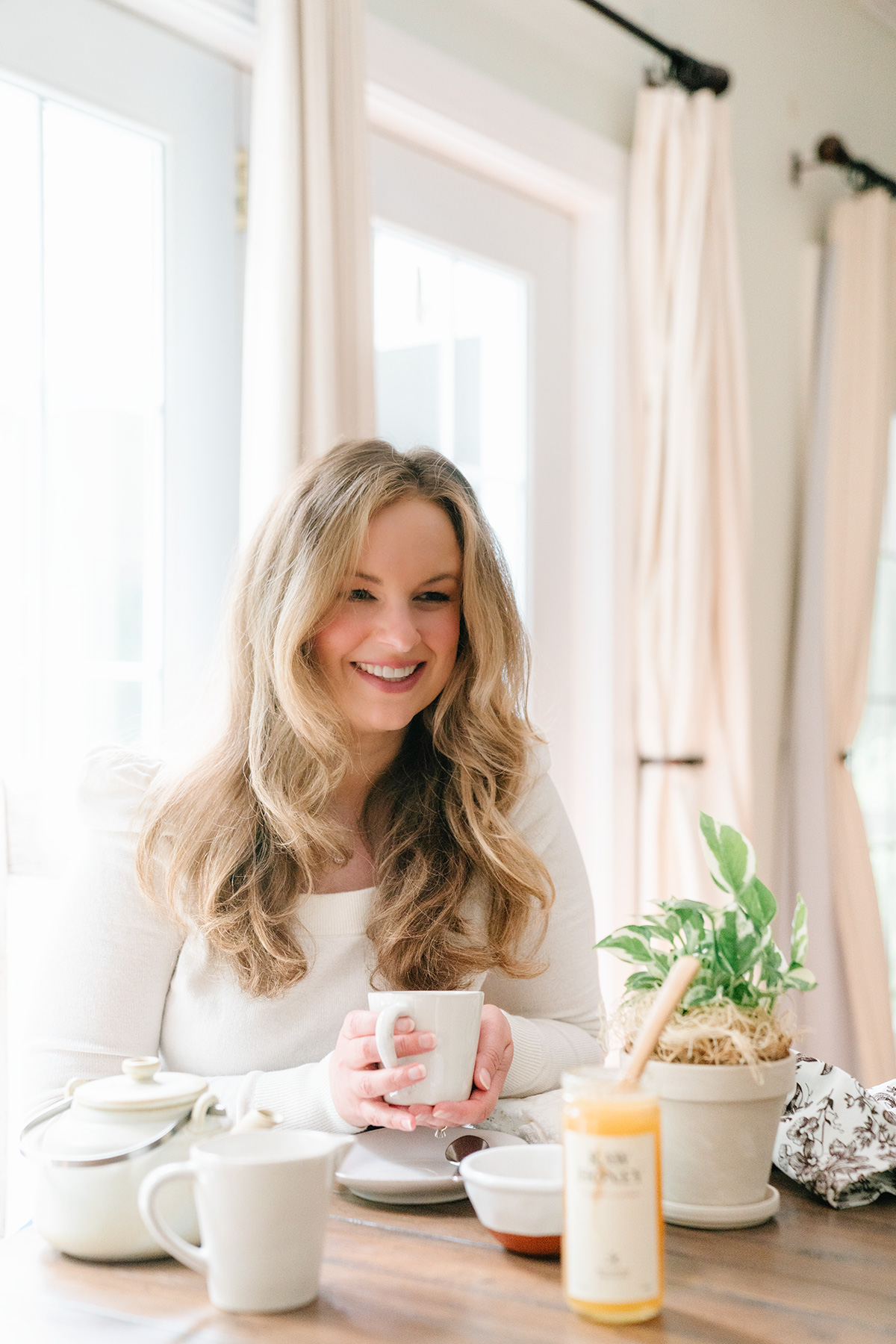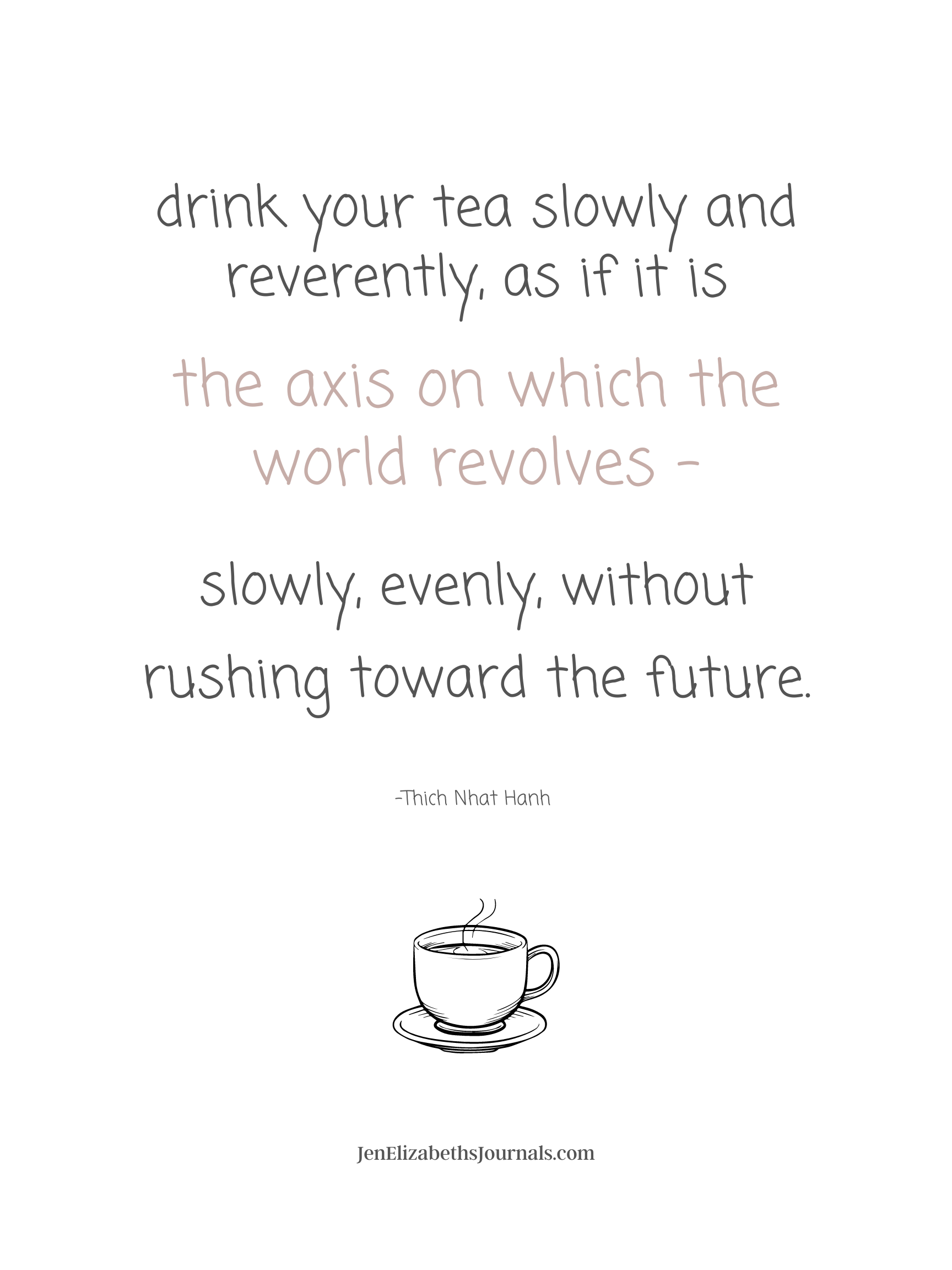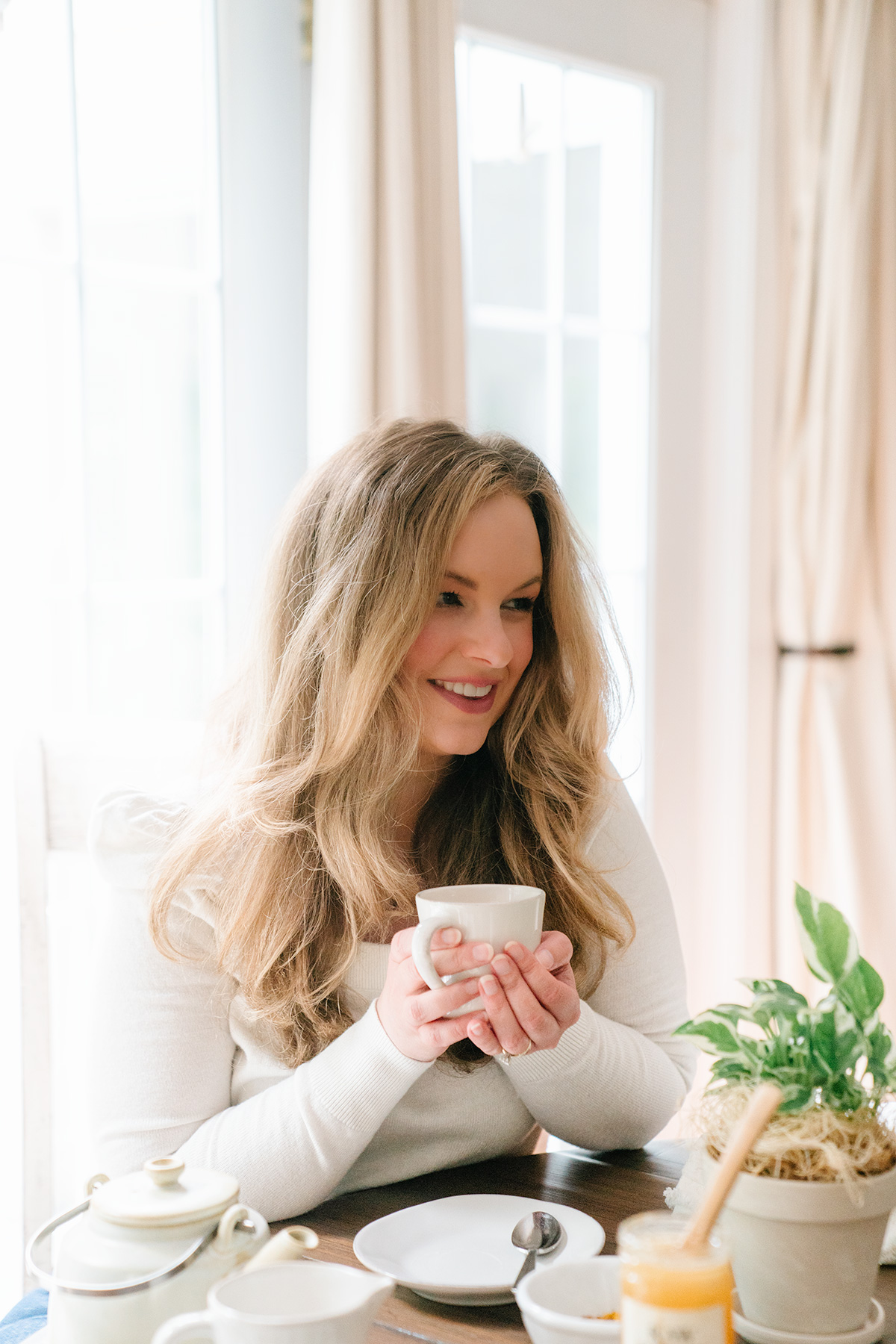
How many times do we do something where we’re just disconnected, we’re not even really there?
How many times do we go along on automatic pilot without awareness of our moment-to-moment experience?
We’re having our morning tea, scrolling through social media, checking our email, having a conversation, and texting, all at the same time.
Where is the taste of that tea?
These are the words of my meditation teacher, Sharon Salzberg [slightly adapted]. When I heard her, I knew I had to write it all down because it rang so true!
In today’s “hustle” culture, we live so much of our lives racing through mechanical routines. How many delicious drinks and meals have we barely tasted, for example, because we were also busy checking our phones and watching tv?
I’m sure you can relate to this level of distraction. It’s an epidemic in our world, and it’s leading to so much anxiety and depression. Have you ever driven to work completely mindlessly – on autopilot – and suddenly asked yourself, “How did I even get here?”
Whatever it is we’re doing, we owe it to ourselves to be all there.
Believe it or not, the most basic act – simply drinking a cup of tea – can bring us deep levels of contentment and fulfillment. Joy is actually so simple! But we have to learn how to pay attention.
A Tea Meditation is Self Care
When we’re feeling stressed, anxious, or overwhelmed, most of us turn to addictive behaviors to cope. We pour a glass of wine, start scrolling on our phones, turn on a tv show, or mindlessly snack. Self care is a healthy, uplifting alternative to addictions.
We also uplift others when we practice self care. The only way that we can learn to truly take care of the important people in our lives – our kids, family, and community – is by learning how to take care of ourselves first.
That’s one reason I love doing a tea meditation. I drink tea everyday anyway, so it’s a simple way to add mindfulness practice into my normal routine. Doing a tea meditation allows me a few moments to just calm my chaotic mind and take a few deep breaths.
A Tea Meditation Only Takes a Few Minutes
You might not want to turn every drink into a meditation (or maybe you will!). But I highly recommend trying a tea meditation even once, just as an experiment.
You’ll learn how transformative the experience can be. You’ll probably find yourself feeling so much more renewed, fulfilled, and alive after the meditation. You’ll likely enjoy your tea more than ever too!
And the entire tea meditation doesn’t require more than a few minutes of your time. If you have a hectic work schedule or if you’re raising little kids, just set aside several minutes (maybe early in the morning or before bed) to try a tea meditation.
How To Do a Tea Meditation
- You might find it easiest to try your very first tea meditation when you’re alone. Solitude can help you to avoid distractions and not feel self-conscious.
- Also turn off and set aside all of your devices. Only your body, physical senses and your tea are required for this meditation!
- To begin, try to let go of your typical trains of thought while preparing and drinking your tea. Imagine taking all of your thoughts – every to-do list, every concern about the future, every disappointment from yesterday or a week ago – and dropping them in a big bag outside of your kitchen. Leave them there to pick up again after your tea meditation is over.
- As you let go of thinking, you’ll notice your physical senses springing to life. Focus all of your attention on your senses, and observe each sense deeply.
- Listen carefully to the sound of the water filling the teapot. Then try to listen even more carefully.
- Watch the water flow from the faucet. Try studying the running water in detail, as though you’ve never seen water before.
- Wrap your hands around your tea cup and notice every detail of how it feels. Is it warm? Smooth? Dense and solid?
- Bring your tea cup close to your nose so you can fully breathe in the fresh aroma. What particular scents do you notice? A hint of grass? Cinnamon?
- Notice the feeling when the warm tea hits the roof of your mouth and moves down your throat. What does it feel like? When do you lose awareness of the sensation?
- Try to focus all of you attention on becoming more .. and then more … deeply aware of the experience of your body.
- When thoughts pop into your mind and threaten to steal away your attention, just gently notice. You can simply acknowledge that thoughts are arising and then gently shift your focus back to your tea. You don’t have to fight your thoughts. Just observe them without judgment, then return your attention to your senses in this very moment.
- When you’ve had enough tea, spend a moment reflecting on the experience. Did the tea meditation bring you a sense of peace or calm? Do you feel more clarity? Did you appreciate or enjoy your tea more than usual?
- It’s really helpful to notice how the tea meditation changes your experience and changes you. You might even find yourself bringing the same deep attention and mindfulness into other activities during the day!
Drink your tea slowly and reverently, as if it is the axis on which the world revolves – slowly, evenly, without rushing toward the future. – Thich Nhat Hanh


[I’m grateful to my instructor Sharon Salzberg for teaching me this tea meditation practice.]